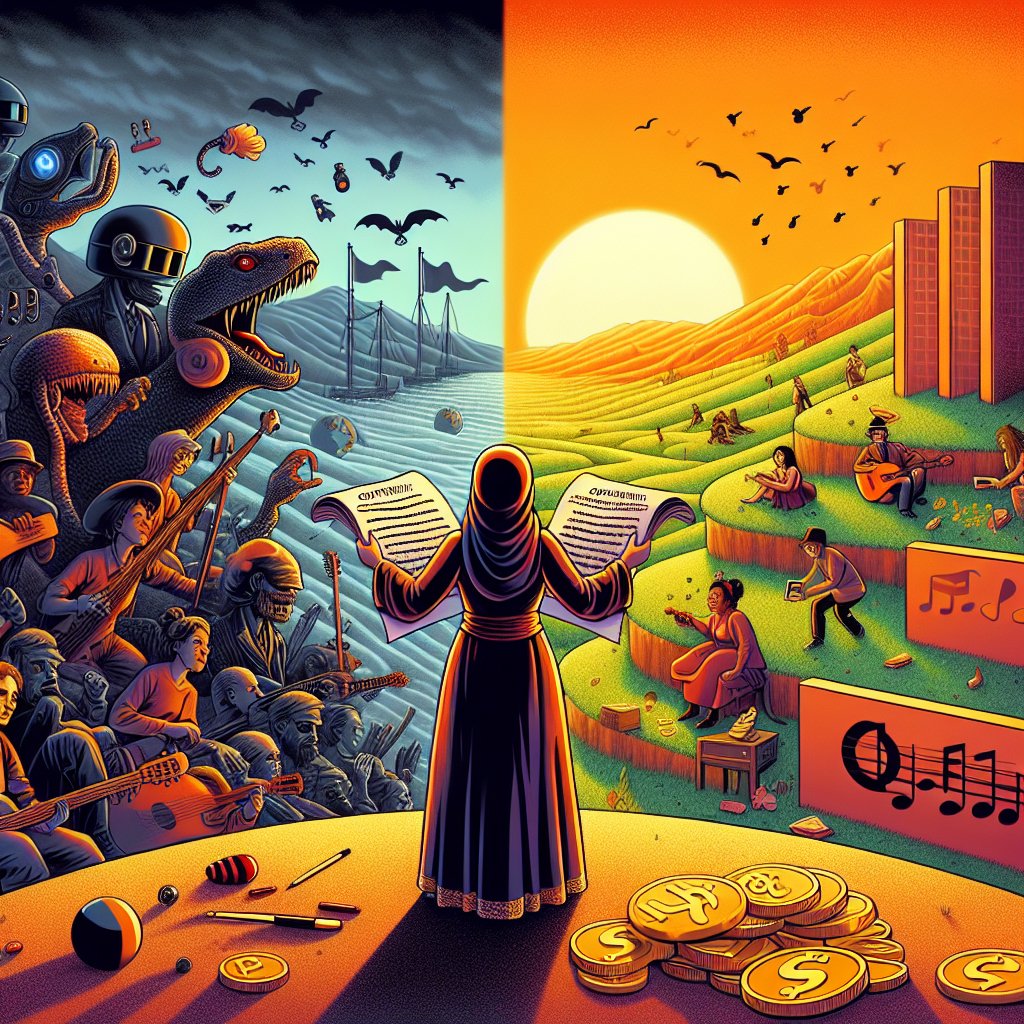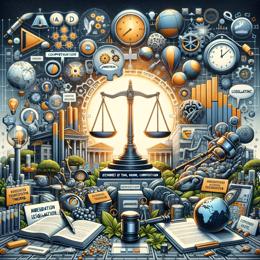Image created by AI
The Crucial Battle for Artist Royalties in South Africa's Copyright Amendment Bill
South Africa is poised on the edge of a legal revolution that could transform the lives of artists and creators across the nation. At the heart of the matter lies the Copyright Amendment Bill, which after a decade of development, is on the cusp of becoming law. Its passing would mark the end of an era defined by exploitation and insufficient recognition of artists' rights.
The struggles of established performers like Marah Louw, who hasn’t seen a cent in royalties for the broadcasts of her work, encapsulate the plight of many South African creators. Stardom has not shielded them from the injustices of old laws that leave them financially vulnerable while corporations profit. With the proposed Bill, this story is set to change.
Performers, musicians, authors, and composers stand to gain the right to fair remuneration for the repeated use of their work. This would align South Africa’s protection for artists with the standards seen in the US or EU, where creators’ rights receive far greater respect.
But the Bill’s importance extends beyond individual artists - it touches every corner of the creative sector. By insisting on fair access to works of knowledge, such as textbooks, the legislation aims to tackle educational inequality head-on. This echoes the historic fight against prohibitive drug prices during the AIDS crisis in the mid-1990s - a battle that saved millions of lives when pharmaceutical companies were forced to lower their prices.
Much like Big Pharma back then, large publishing houses are currently lobbying against the Copyright Amendment Bill, fearing for their profit margins if compelled to make texts more affordable. However, history serves as a stark reminder: sustainable business can and should benefit all societal segments.
Furthermore, the Bill strengthens the cultural fabric by allowing the creation of braille versions of books for blind South Africans and enabling the archival and research uses of creative works through “fair use” provisions.
Yet, not all collecting societies representing artists have acted in good faith. Many have failed to distribute royalties fairly, often leaving artists uncompensated while they pocket the proceeds. The big players in these groups, such as multinational record labels, have a conflict of interest that the Bill seeks to rectify with more stringent regulations.
The resistance from corporations is formidable, but so is the resolve of the ANC and the civil society that supports the Copyright Amendment Bill. The Bill needs to pass not only for the current generation of artists but also for future creators and the public at large. In a way, it is a nurturing of the very soul of South Africa, giving due credit and fostering innovation and creativity in its vibrant artistic community.










